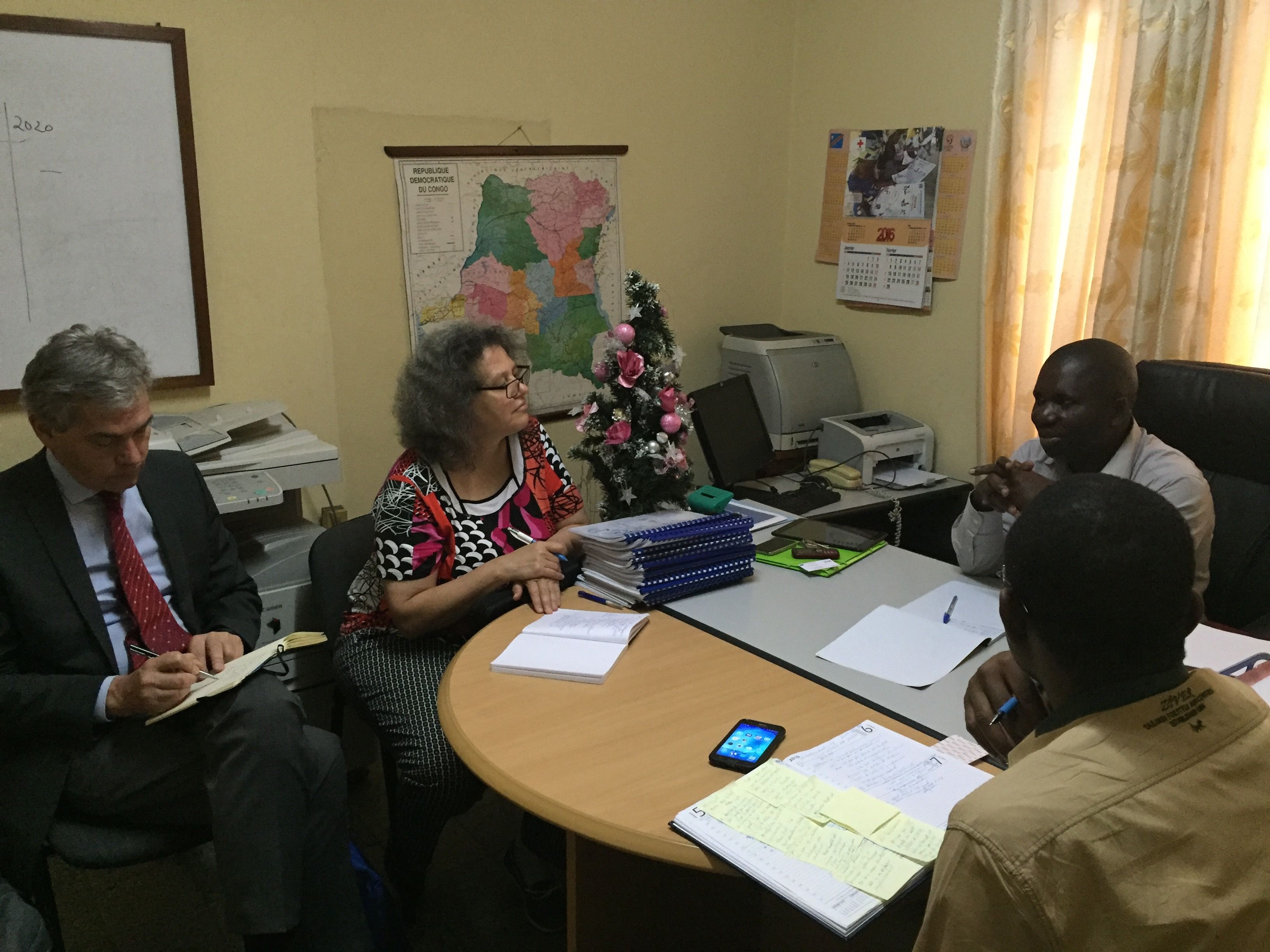SPHIP support team visits RIPSEC project in the DR Congo
Dr Jaap Koot visited the RIPSEC project in DR Congo from 31 January until 6 February 2016. In Kinshasa he met all partners of the project consortium and visited the School of Public Health of the University of Kinshasa, the National Biomedical Research Centre, the Ministry of Health, the WHO, and the Mont Alba Demonstration Hospital. The Institute of Tropical Medicine (ITM) in Antwerp is the coordinator of the project.
The RIPSEC project wants to strengthen the research capacity of Congolese health institutes and aims to create an autonomous Health Knowledge Centre for DR Congo (CCSC) to provide evidence-based policy advice to the Ministry of Health. The project also wants to make a contribution to the revitalisation of the district health care approach (replacing the vertical approach that has become dominant in the DR Congo) through Zones for Learning and Research (ZARs).

Visit to MoH
This is an ambitious plan in terms of logistics in this vast country. The project has to sensitise all these stakeholders from grass root to ministerial level, and get them to collaborate in this project.
The project is just over one year old. The first four months of 2015 were used for establishing project teams in the ITM and in the Congolese institutions. In March 2015 there was an official launch of the project. Good collaboration has been established with government institutions, the WHO and with all project partners. Now they are recruiting staff for the new Health Knowledge Centre for DR Congo and candidates for PhD positions in the project. Also candidates for Master courses are being selected now. Training of staff in research methodology is under preparation.
Three Zones for Learning and Research (ZARs) have been selected so far (out of the four planned) in the Centre (Gombe Matadi), the South (Kisanga) and the East (Walungu) of the country. These zones have the capacity to be exemplary for other zones, as minimum conditions are in place, such as a functioning management team, a referral hospital, etc. Each ESP has appointed a member of staff who will work part-time in those zones and will mentor the apprentices. A baseline survey has been conducted to map the health services in the three zones. In October during a launching conference of the ZARs the methodology and approach was agreed. The conference results will be shared at Zonal level.
The Ministry of Health and the World Health Organisation have high hopes that the project will contribute to policy development and innovative approaches in health care delivery.
